Namelessness. Anonymity. Invisibility.
For the protagonist in Jerome Ruillier’s new Drawn+Quarterly-published graphic novel, The Strange, these three things are inextricably linked — and while all of them are, to one degree or another, imposed upon him by society and circumstance, the first two are undeniably de-humanizing (even if, fair enough, he’s a dog), while the third is key to, if not his freedom, at least his continued survival in the country he is attempting to scratch out a subsistence-level “living” in.
And sticking with the theme of anonymity, it permeates this book throughout: not only is its central character never saddled with a name, neither are the countries of his birth and residence. This could be happening anywhere. To any immigrant.
Ah, yes — immigration. As far as issues go, they don’t come much more timely and topical than that, do they? In the last few years, as an unfortunate wave of nativism and xenophobia has crested in the West, life has gotten damn rough for our brothers and sisters who arrive within our borders from parts afar, and while the natural enough assumption for readers to make is that Ruillier, who hails from France by way of Madagascar, is telling a “European” story here, in truth there is a harrowing universality to the experience he’s relating: his dog, seeking a better life for his family, undertakes a lengthy journey — fraught with heavy peril and even heavier financial cost — from the dark alleys and foreboding high-rises of his homeland to a nominally more prosperous nation where he and his fellow immigrants are referred to, both simply and derisively, as “stranges.” It’s not a great situation for our downcast canine, as I’m sure comes as no shock — but is this really his story?
It’s a valid — if perhaps unexpected — question, if only because Ruillier, who delineates the series of short-form vignettes that make up his long-form narrative with stark and “sketchy” colored-pencil illustrations that employ a deliberately limited (and therefore quite dramatic) palette, is primarily concerned with conveying experience rather than character, to wit: what we know about this canine in a land of wolves and mice (among other species) we learn by way of both what happens to him, and how those around him treat him.
Employers, landlords, fixers, cops, cab drivers, even passers-by — their attitudes and actions literally define and delineate reality for Ruillier’s central character, and for an undocumented immigrant this is no doubt true no matter what country they happen to be in: one sideways look to the wrong person, one perceived act of disrespect, one step out of line in the eyes of someone else — they can all lead to the one phone call. The one that gets you arrested and/or sent packing. It’s a life constantly spent on the precipice of losing what very little you have.
To his immense credit, Ruillier’s definitely done his homework here — he worked with French non-profit Reseau Education Sans Frontieres to gather up the stories of actual migrants and parsed out the common elements in them before filtering these irreducible commonalities through his bold and unique artistic lens. The struggles here are authentic. The fears palpable. The loneliness, desperation, alienation, disaffection far more personal and immediate than the third-hand narrative accounts would lead one to believe — and the same is true of the acts of kindness, generosity, and empathy that shine through both the darkness of prejudice and the dimness of uncaring bureaucracy.
In these politically- and rhetorically-charged times — and the manner in which “macro” socio-political realities filter down to the “micro” of everyday life is one of Ruillier’s primary narrative concerns — it can be all-too-tragically common for people to just plain overlook the fact that so-called “illegal” immigrants are flesh and blood (and, in this case, fur), and have the same needs for compassion, understanding, and respect as any of us — needs that are compounded by their precarious circumstances and often-harrowing past experiences. The Strange is a necessary reminder of this fact that comes at just the right time.
Tags: Columns, Comic Books, Comics, Dogs, Drawn+Quarterly, Europe, France, Jérôme Ruillier, Madagascar

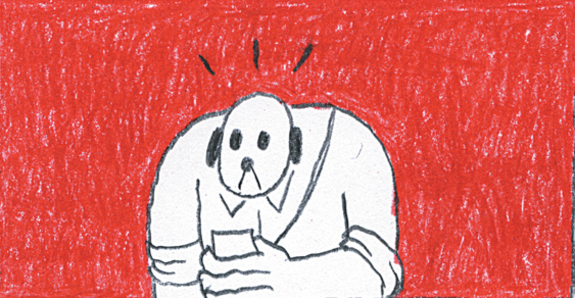
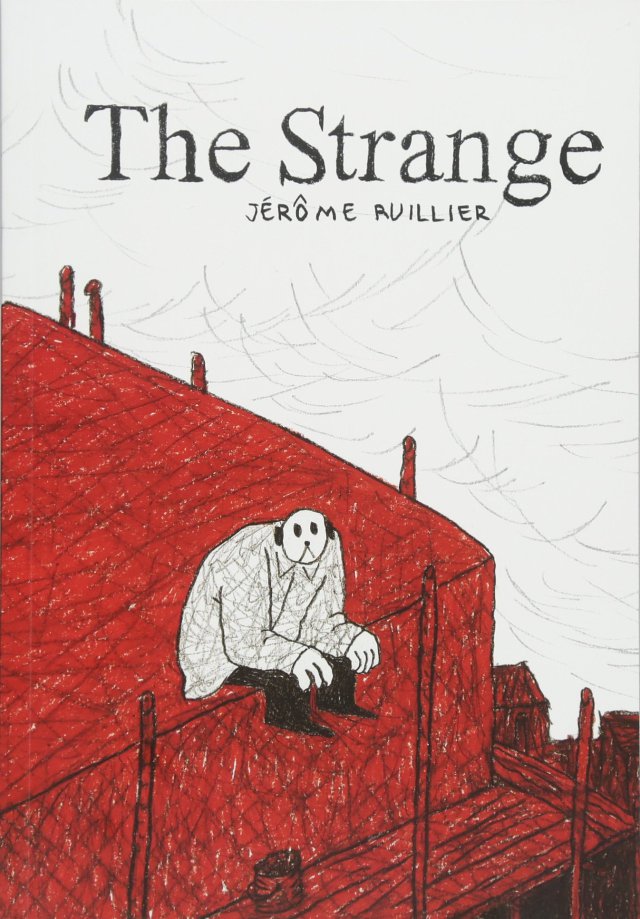
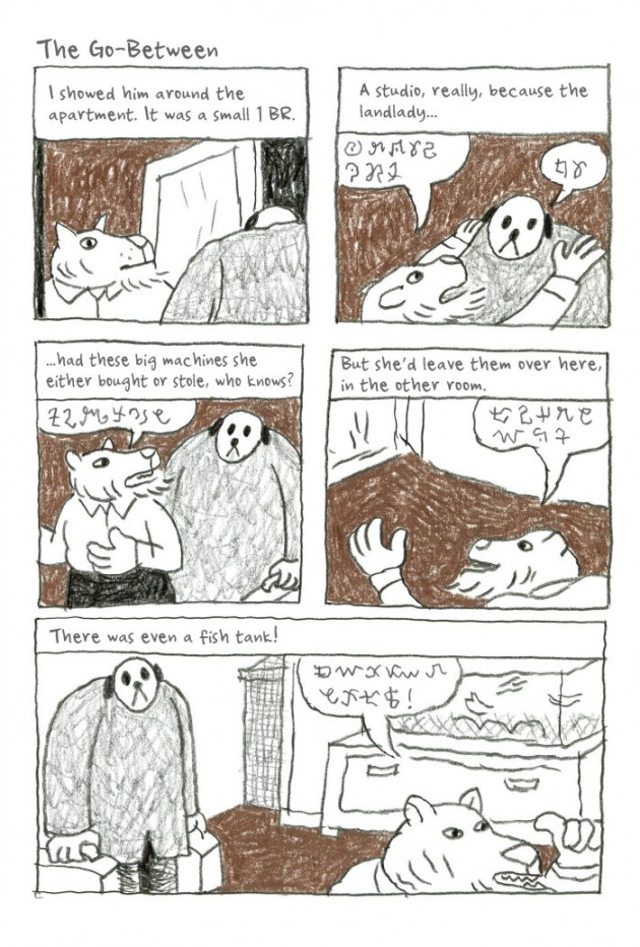
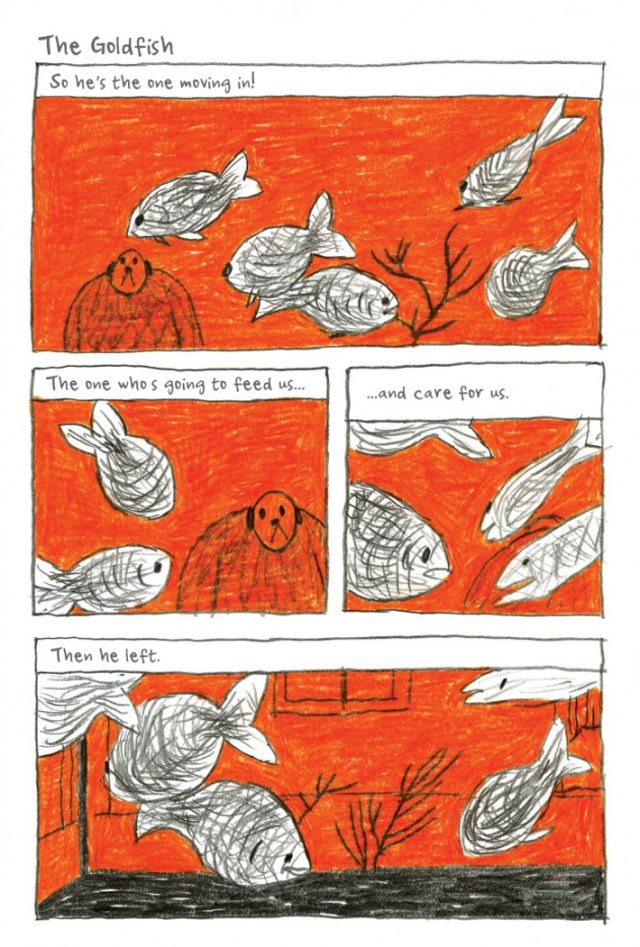
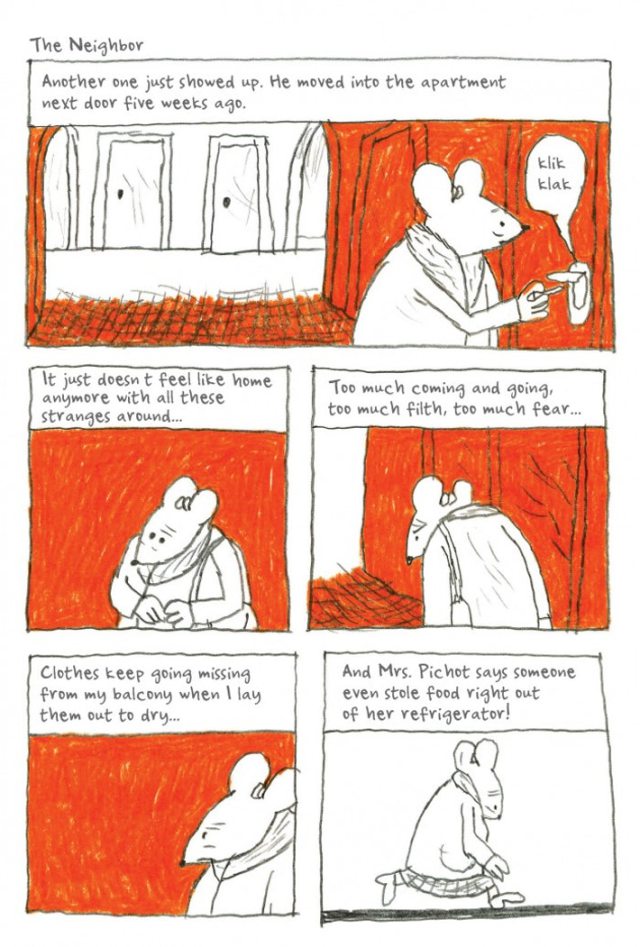
No Comments